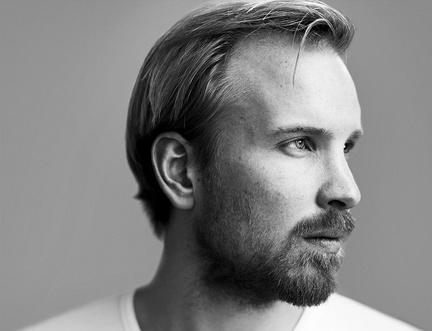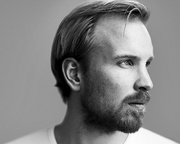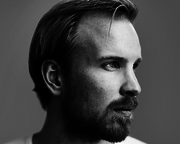More articles Sunday 16 August 2020 8:00pm
Rutger Bregman: "Changing the world often starts with telling a different story"

Dutch historian Rutger Bregman set out the fascinating argument for adopting a positive view of the human race today at the Edinburgh International Book Festival as he discussed his latest book, Humankind.
“Stories are never just stories… stories can change who we are as a species… we can become our stories… So changing the world often starts with telling a different story”, said Bregman. He argued that, far from what we’ve been led to believe by philosophers, historians, politicians and the elite in the past – human beings are essentially kind at heart, adding “If we believe that most people are selfish and nasty and lazy then we’re going to create a world that will bring out that behaviour. We’ll create institutions, schools, democracies, even prisons that will bring out the worst in each and every one of us. Once you change that, once you move to a different story, then you can create a whole new world.” This optimistic view of our inherent good nature could be the radical force needed to change social policies and edge us away from hard capitalism, towards more considerate way of living.
In a conversation with journalist Lee Randall he confesses that, like most of us - he used to have a much more cynical view of humanity, saying “I read Lord of the Flies when I was 16 and I thought - this is depressing, but it’s probably realistic as well.” However, after his call for a Universal Basic Income in his book Utopia for Realists was continually refuted by his readers because of the wide-held belief that “human nature” would make it impossible: “because people are just selfish; because people are just lazy…” - essentially because “people are just not like that” - he wanted to write a book that dug a little deeper and looked at “who we really are as a species”.
“Why us? Why did we conquer the globe?... What makes human beings so special?... There’s a really exciting new theory in evolutionary anthropology and biology that we call the theory of self-domestication… we are a domesticated ape.”
Far from setting us back in evolutionary terms, Bregman points out that studies actually show domesticated species are far more advanced in communicative intelligence and social learning than their wild ancestors, and that our domestication is actually “our true super-power as a species.” However civilisation – and later capitalism – has slowly undermined this evolutionary kindness. In the quest for “progress” we have forgotten what connects us as a species. Bregman points out that archaeological evidence shows that it wasn’t until the birth of “civilisation” about 10,000 years ago, that things like wars and horrendous cruelties really started to happen. “Negitivism rises and rises with the end of nomadic living… Having possessions triggered something within us, and created hostility and xenophobia and was also a really bad turning point for women’s equality… Now we’re at a point in history, that we’re not only the friendliest species in the animal kingdom, but also the cruellest.”
He warns against “the corruptive effects of power”, stating that: “Power is a very dangerous drug. It really estranges us from the rest of society… If you look at brain scans of powerful people, and you look at the regions that are involved with feelings of empathy – they don’t light up anymore.’ Noting that one of the main authorities into this research, Dacher Keltner, compared “studying powerful people” to “studying people who have suffered brain damage… there are certain parts of the brain that are not working anymore…”. A physical example of this, he says is the inability of politicians to blush. “Shame is incredibly important for the human species. We are one of the only species in the whole of the animal kingdom that have the ability to blush… we just involuntarily give away our feelings to other members of our species… [blushing] helps us to establish trust and make friends. Then you think – hey – when was the last time I saw Boris Johnson blush? Or Dominic Cummings? Or Donald Trump?... they don’t blush anymore. They’ve lost that ability to feel shame, even though shame is so incredibly important to build a sane civilised society and keep everything together.”
Bregman goes on to point out that our intrinsic kindness is most apparent in moments of crisis, here “people become their best selves.” Going on to say that far from war and natural disasters destroying the human spirit, it actually brings us together, however, when asked if the pandemic had brought us closer together, he hesitated: “This is a crisis so people pull together… at the start we saw a lot of cooperation and altruism, people protecting each other… The other side of the pandemic is the lack of face-to-face contact… We are a very physical creature… social distancing is so so unnatural for us. The situation has changed from a sudden crisis to an occupation – we’re being occupied by the virus. How long can we handle that?”
As well as criticising elite powers and capitalism, Bregman warns against the destructive nature of the news, stating that it’s “worse for us than sugar”. “The news is about sensationalist reporting on incidents… if you follow the news you’ll become a lot more cynical, have a much darker of view of human nature” However he goes on to say: “Good journalism helps you to zoom out and focus on the bigger forces that govern our lives. If I had a newspaper, climate change would be on the front page every single day. Intellectually, and morally, and psychologically people should just completely ignore the news, throw their television out the window, and perhaps read a book every day – or something like that… People should binge watch the Edinburgh Book Festival.”
--
This event was part of the Edinburgh International Book Festival’s Ideas for Our Times: The Scottish Mortgage Investment Trust Event Series. To watch the event again in full, go to: https://www.edbookfest.co.uk/the-festival/whats-on/rutger-bregman-there-is-hope-for-the-human-race/player
Look, Listen & Read
- 2026 Festival:
- 15-30 August
Latest News
 Major new partnership with Celtic Connections
Major new partnership with Celtic Connections





